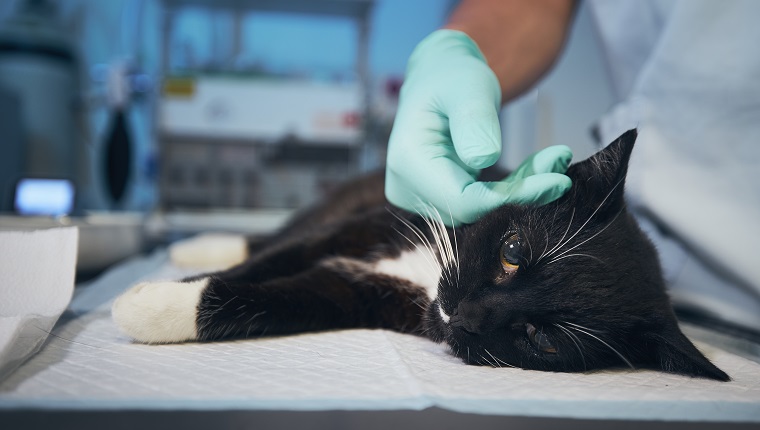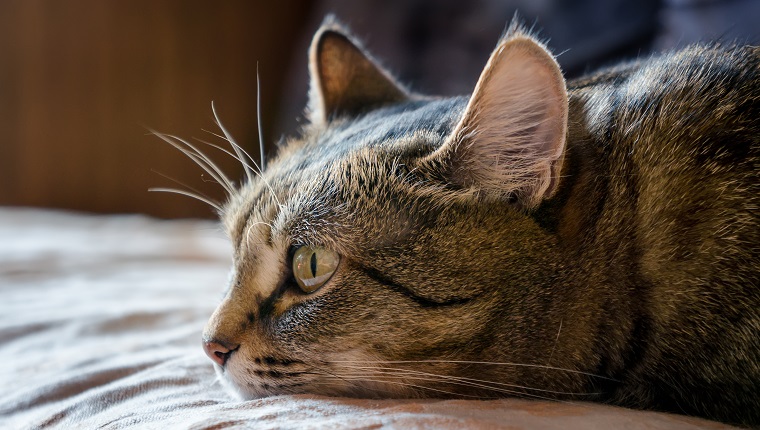Anemia due to chronic kidney disease (CKD) in cats occurs when the kidneys cannot produce enough of the hormone erythropoietin. In turn, the cat’s bone marrow can’t produce sufficient amounts of red blood cells, which means that the cat can end up with a state of bone marrow failure.
When a cat’s body doesn’t produce enough red blood cells, they may develop anemia. Anemia due to CKD affects a high percentage of older cats, with studies suggesting that up to 30 percent of kitties over the age of twelve might suffer from chronic kidney disease.
If you see signs that your cat might be suffering from anemia, then you must consult your veterinarian for a proper diagnosis and course of treatment. Here’s what you should know about the symptoms, causes, and treatments of anemia due to CKD in cats.
Symptoms Of Anemia Due To Chronic Kidney Disease In Cats
Anemia due to CKD in cats can bring on a wide and varied range of symptoms which can relate to both CKD and anemia. Some of the most common symptoms include:
- Losing weight
- Increased heart rate and increased rate of breathing
- Acting lethargic and seeming depressed
- Seizures
- Being negatively affected by cold weather
Causes Of Anemia Due To Chronic Kidney Disease In Cats

There are a range of causes of anemia due to CKD in cats. Some of the most common causes include:
- Iron deficiency
- Blood loss
- Infection
- Congenital condition
- Various diseases that affect the kidneys
Treatments For Anemia Due To Chronic Kidney Disease In Cats
If you think that your cat is developing anemia due to CKD, your veterinarian will want to carry out a full physical examination. This will include comprehensive blood work and a urine sample, both of which will be evaluated to assess how effectively the kidneys are working.
In particular, your vet will want to get an accurate reading of how much of the hormone erythropoietin is present in your cat’s blood. They may also recommend bone marrow tests, along with X-rays and ultrasounds of the kidneys.
Treatment can involve blood transfusions, increasing the levels of iron in the body, and upping the amount of erythropoietin in the bloodstream.
When in the recovery stage, it’s important that your cat keeps up regular visits with their vet. This is to ensure that the vet can properly monitor the function of the kidneys and the number of red blood cells.
Has your cat suffered from anemia due to CKD? How did your vet help your feline recover? Tell us all about it in the comments below.




